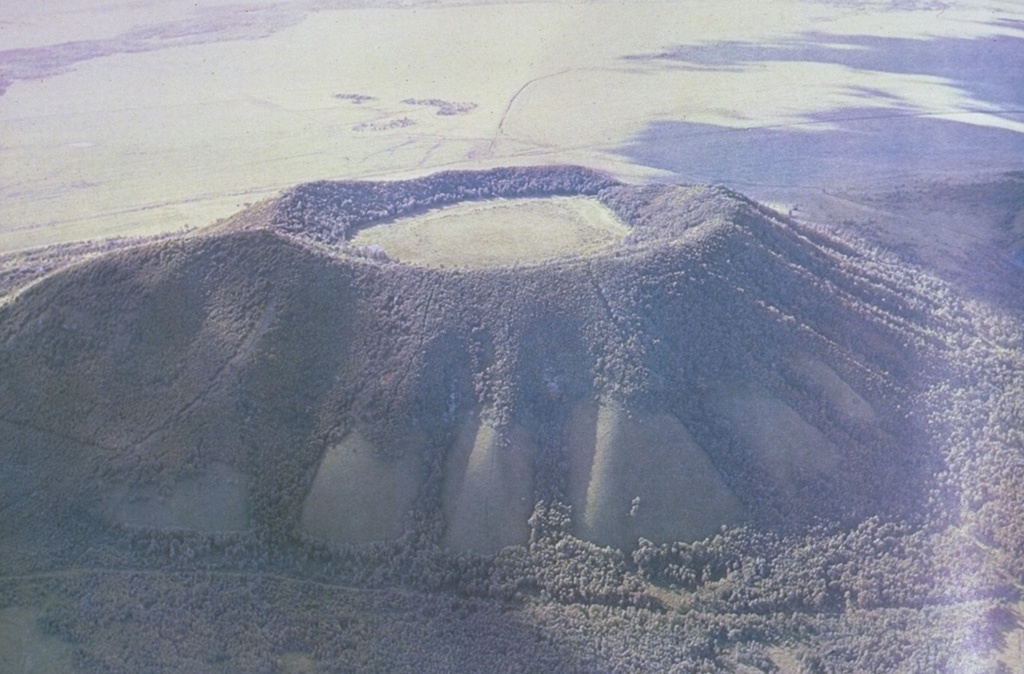Global Volcanism Program | Image GVP-02530

The Pleistocene Nangelaqiushan scoria cone contains a 500-m-wide flat-bottomed crater, is one of many cones forming the Wudalianchi volcanic field in Manchuria, NE China. The cones show a preferred alignment along three parallel NE-SW trends. The Wudalianchi volcanic field was named for five scenic lakes dammed by lava flows during a 1719-21 eruption, which formed two new scoria cones and produced a 65 km2 lava field.
Photo courtesy of Jim Whitford-Stark, Sul Ross State University, Texas (published in Feng et al., 1979).
![]() This image is made available under the Creative Commons BY-NC-ND 4.0 license terms.
This image is made available under the Creative Commons BY-NC-ND 4.0 license terms.
Keywords: crater | scoria cone

Wudalianchi
